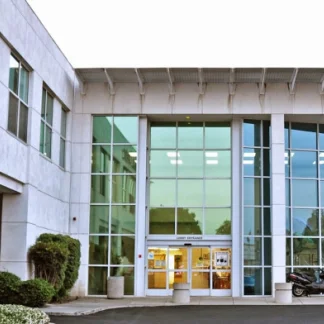Breathe Life Healing Centers
Breathe is dedicated to outstanding trauma-informed clinical care to each client...
Waismann Method - Opioid Detox Treatment is a drug rehab and detox facility for adults in Beverly Hills, California. The center specializes in rapid, sedation-assisted opiate detox and medically assisted aftercare. They offer inpatient treatment and aftercare support, including dedicated services for young adults, trauma survivors, military personnel and Veterans, and persons with co-occurring addiction and mental illness.
Clients undergo a personalized evaluation and are assigned a care team. Under rapid sedation-assisted detox, clients are administered antagonist naloxone while sedated so they can sleep throughout their withdrawal. This process can reduce physical detox to a few hours and the post-detox stabilization phase to a few days by decreasing the discomfort that traditional withdrawal can induce. Transportation to and from airports is available.
Clients who complete the rapid sedation-assisted detox are transferred to the Domus Retreat in Orange County to complete the detox process. These additional detox programs can include medications and alternative holistic treatments. Meetings and chores are not mandatory. The facility includes private rooms, meals, individual psychotherapy, peer support, emotional support, massage therapy, IV therapy, psychodrama therapy, yoga, a pool and gym, and group activities. Clients are supervised 24/7 and have amenities that include laundry and complimentary toiletries. Stays at the Domus Retreat last up to one week.
In addition to MAT, clients may receive monitoring, evaluations, and support from their case management team. Post-detox treatments can include Vivitrol injections or oral naltrexone therapy. Programs include individual and group therapy, life skills development, and peer support. Clients have private rooms, meals, and activities within a hospital setting. Inpatient treatment typically lasts 5-10 days.
Clients receive continuous care and support through their case management team. The Domus Retreat may be available for up to one week for clients who decide they need additional resources. Staff may make additional referrals to outside facilities for specialized treatment. Emergency and Veterans hotlines are available 24/7.
Waismann Method – Opioid Detox Treatment is accredited by The Joint Commission and LegitScript certified.
Waismann Method – Opioid Detox Treatment offers self-pay and financing options, including LifeStream. The center does not accept insurance, and its treatment can range from $19,000 to $24,800. However, most major insurance plans, such as Cigna, Blue Cross Blue Shield, Humana, and others, will cover some or all of the costs of ancillary medical, mental health, and/or behavioral health services. Please check with your insurance provider for specific details concerning out-of-network coverage.
Contact us for more information: (800) 423-2482

Connect with Waismann Method - Opioid Detox Treatment by calling their admissions team directly.
(800) 423-2482 Website Get DirectionsFitness therapy blends exercise with psychotherapy for a fun, inspiring, and effective way of treating addiction and other issues. By incorporating movement into counseling sessions, clients become more empowered, motivated, and goal-oriented, all while strengthening their bodies and becoming more flexible. Fitness Therapy is usually used to complement a course of treatment (inpatient or outpatient) to make it even more successful. Increasing the connection between a patient’s mind and body helps both with healing as well as in creating new, healthy habits.
In individual therapy, a patient meets one-on-one with a trained psychologist or counselor. Therapy is a pivotal part of effective substance abuse treatment, as it often covers root causes of addiction, including challenges faced by the patient in their social, family, and work/school life.
Nutrition therapy, aka medical nutrition therapy (MNT), is a way of treating physical, emotional, and medical conditions through diet. Specific dietary plans are designed by professional nutritionists or registered dietitians, and patients follow them in order to positively affect their physical and mental health.
In individual therapy, a patient meets one-on-one with a trained psychologist or counselor. Therapy is a pivotal part of effective substance abuse treatment, as it often covers root causes of addiction, including challenges faced by the patient in their social, family, and work/school life.
Nutrition therapy, aka medical nutrition therapy (MNT), is a way of treating physical, emotional, and medical conditions through diet. Specific dietary plans are designed by professional nutritionists or registered dietitians, and patients follow them in order to positively affect their physical and mental health.
Nutrition therapy, aka medical nutrition therapy (MNT), is a way of treating physical, emotional, and medical conditions through diet. Specific dietary plans are designed by professional nutritionists or registered dietitians, and patients follow them in order to positively affect their physical and mental health.
Breathe is dedicated to outstanding trauma-informed clinical care to each client...
Covenant House California offers housing programs and outpatient medical and men...
Children’s Bureau - Magnolia Place Family Center, in Los Angeles, California, of...
Synergy Sober House is a private rehab located in Los Angeles, California. Syner...